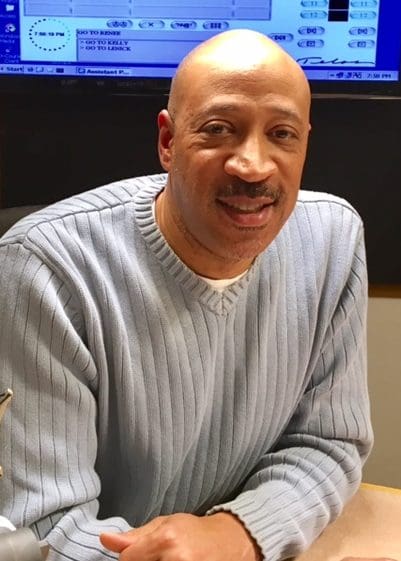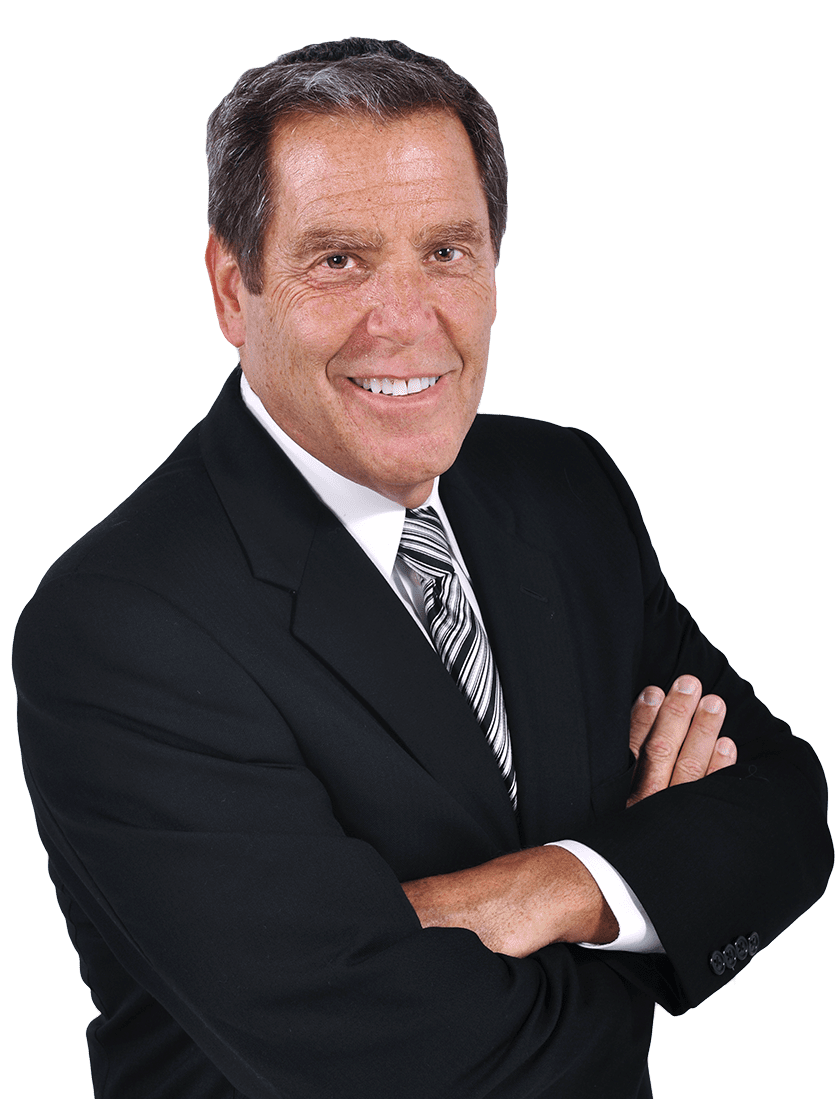Check Out Bill Cates’ NEW Top Advisor Podcast™
Interviews with Top Advisors for Top Advisors!
Top Advisor Podcast™
Ep. #26 – How to Target Millennials as Financial Advisory Clients with Ivory Johnson, CFP®, ChFC
According to Forbes, “Millennials will hold five times as much wealth as they have today, and the group is anticipated to inherit over $68 trillion from their Baby Boomer parents by the year 2030. This will represent one of the greatest wealth transfers in modern times.”
There are already approximately 618,000 millennial millionaires. Millennial millionaires make up approximately 2% of the total U.S. millionaire population. The majority of millennial millionaires have a net worth that ranges from $1 million to $2.49 million and falls between the ages of 34 and 37.
Due to inheritances, trusts, and estate planning, there will be a steady flow of Millennials getting very rich soon.
The reality is that many millennials and younger clients with huge upsides want to work with financial advisors, just not in the traditional way. And, you don’t necessarily have to hire younger associates to attract these younger clients.
In this episode, Referral Coach Bill Cates is joined by Ivory Johnson, CFP®, ChFC, and founder of Delancey Wealth Management. Ivory and Bill explain the importance of attracting a younger clientele, how to target millennials by adjusting your approach, and how this will benefit your business.
Want More Top Advisor Podcast Episodes? CLICK HERE!
–
Bill & Ivory discuss:
- Why Ivory believes it’s important to work with younger clients – especially the adult children of his older clients.
- How to target millennials as advisory clients.
- 2 important questions Ivory asks every client in order to become more relevant and helpful to them.
- How Ivory deals with younger clients and the fun part of working with them.
- Why advisors need to have a social media presence to attract millennials.
- Ivory’s optimism for technology and digital assets.
- …and more!
–
Resources:
- Top Advisor Podcast Ep. #3: How a Business Friendship Can Turn a Loyal Client into an Advocate with Lester Matlock, CFP®, CRPC®, APMA®
- Referral Coach: Resources
Connect With Bill Cates:
-
Show Transcript
Welcome to The Top Advisor podcast brought to you by Proud Mouth’s Pod Rocket Academy. I’m your host Bill Cates, creator of the Cates Academy for Relationship Marketing. In each episode, I interview one of our industry’s top performers getting them to pass on their secrets to success to you, so that you can impact more lives and generate more income. Now onto the show.
BILL: Welcome. Before I get started I want you to know about our on-demand video based program that will allow you to learn almost everything I teach related to client acquisition, particularly referrals, introductions, communicating your value, and creating productive relationships with centers of influence.
We offer listeners of Top Advisor Podcast, a $200 membership fee reduction to the academy. When you get a minute head over to CatesAcademy.com. Use the coupon code TCA 200 and you’ll save $200.
You know, much of today’s show will focus on the concept of bringing in younger clients into your book of business. Now, younger is a relative term. To some, younger could mean working with the dreaded millennial generation. This episode is not meant to be a treatise on millennials and their money. But I would like to quote from a recent article in Forbes, it says “a study shows that millennials will hold five times as much wealth as they have currently today. And the group is anticipated to inherit over $68 trillion from their baby boomer parents by the year 2030, including my daughter, I should say. This will represent one of the largest wealth transfers in modern times.
The article goes on to say, according to wealth engine data, they’re already approximately 618 millennial millionaires and they make up approximately 2% of the total US millionaire population. But the majority of millennial millionaires have a net worth that ranges from 1 million to 2.5 million and fall between the ages of 34 and 37. But due to inheritance trusts and estate planning, there’ll be a steady flow of millennials getting rich very soon.
Since the millennial generation, approximately 73 million total millennials is smaller than the boomers they’re inheriting from the wealth handed down will be highly concentrated. So probably the easiest way for an established advisor to meet younger clients obviously is through introductions from their parents.
Over the last two years, I’ve interviewed or coached close to a hundred advisors. And when it comes to meeting their clients’ children, I get mixed reviews. Some advisors love the fact that serving the children in some way strengthens the overall family relationship and makes them more referable and of course, they capture the assets when the parents pass.
Other advisors, can’t be bothered with these introductions. One advisor told me recently, my clients’ children don’t want to work with their parents’ advisor. Just kind of sluffed it off. I think he’s probably basing this mistaken belief on a very limited sample size of children, right? That he’s made a half-baked attempt probably to get to know them. What I’ve learned is that while this is true, for some, it’s not an assumption on which you want to base the longevity of your business.
So one final point, and then I’ll introduce you to our featured guest, to learn exactly what he’s doing in this area. Millennials used to be criticized for jumping from one job to the next and not being responsible with their money. The research shows, however, as nearly 700,000 millennials age, they’re getting married, buying homes. And with that, they’re getting more serious about their money. So in my humble opinion, ignoring this younger generation could prove detrimental to the long-term growth and health of your business.
This long rant of mine brings us to our featured guest Ivory Johnson, CFP CHFC. Ivory received his BS in finance, sorry, from Penn State University. Now a rival of my Maryland TERPs and has been recognized by the global blockchain association and by RIDAC for his proficiency in blockchain technology and digital assets. And my guess is the younger generation probably has their interest in that. For better or worse.
He’s also a member of the CNBC Financial Advisor Council made up of 20 high level financial professionals. Regularly contributes articles to cnbc.com and has been quoted in Investment News, Wall Street Journal, Black Enterprise, Money Magazine, Kipling Journals, and other publications.
Ivory is also the immediate past president of the 100 black men of gender of Washington DC and received a Washington DC chamber of commerce, nonprofit of the year award for the organization’s mentoring and stem programs throughout the city, using his tenure as president.
He is also the father of a 23 year old son who graduated from Morehouse College with a degree in economics and is reportedly off the payroll. Ivory, good luck with that one as a father of a 30 year old, I don’t know that they’re ever off the payroll. I’m even sure when I got off my dad’s payroll. Ivory Johnson welcome to Top Advisor Podcast.
IVORY: Thank you for having me.
BILL: Well, it’s great to have you here. I’ve been looking forward to this. I know you’re a busy guy, before we get started with the main part of the show, I want to create just a little context. Please tell us a little bit about your business, how long you’ve been an advisor, just a little bit about your team structure of your business. So those who are listening, have a little more feel for who you are.
IVORY: Well, I’ve got my series seven in 1989 to give you some perspective. I’ve been an advisor for over 30 years. Got my CFP in 97, 98. So, I’ve been doing this for a while. I’ve had my own practice where it’s just my shingle for over 10 years now.
And by design, it is a small practice. I outsource the admin. And some of the other functions, compliance of the business. So it’s just me by design. I did that because I wanted a flexible business model where I could create a flexible business schedule and do the things that bring me joy, but also have the capacity to serve my clients in a fashion that I think best represents what their priorities are. And I’ve been able to do that. I make just as much money as I did when I worked for a company that had a billion dollars under management, running their financial planning department. So financially it’s worked out and then the quality of life has been exceptional.
BILL: Yeah, I bet. So, as we were preparing for this interview, you told me about two questions you ask your clients. Questions that from my experience, most advisors don’t ask. They’re a little bit related, but also slightly different. So I wanna go to each one.
Question one is you ask many of your prospects and your clients, what makes you happy? Right. I suspect some folks might be a little surprised with this question, you know, why do you ask this question? How do people react? What’s the benefit for them and for you.
IVORY: What I found is clients would come to an advisor and all they talk about is money. You know, how do I retire?
And they don’t really know what they wanna do when they retire. And what struck me particularly was I had a client, very successful executive who retired and, we had a scheduled appointment and I thought this was gonna be that commercial where you see the financial advisor show up to their client’s daughter’s wedding and help them do this because we had done the long term care planning and the estate planning, and he was comfortably retired. And here I was ready to pat myself on the back and I asked him, so what are you, what are you doing today?
And he goes, “Well, I’m woodworking.” And I said, when did you start woodworking? And he said, “After I realized I was depressed”. Because what happened is he went from the corner office, a situation where when his children came, everybody had to be nice to them. And then he went from the power broker to Bob at home Depot looking for a three 16-inch drill bit, his whole persona had disappeared.
He’s now Bob with the khaki pants, right? And it was devastating for him. And I realized that I’d never talked to him about what he would be doing on a 10:30 on a Wednesday morning after he retired. So I always ask people, “What makes you happy?” Otherwise what we do is in vain because they have a lot of money and they’ve not enjoying it.
BILL: I would suggest too that since money intersects all aspects of one’s life, I don’t know if you can name any part of one’s life, where money somehow isn’t crossing there. It really lets you serve them better. Does it not? I mean, it’s better for you better for them by asking this. A related question, but I know you have a little story around this one too.
You also ask your clients, “What gives your life purpose?”
Now that was a Maslow’s hierarchy, top level question, right? So why do you do this? How do people respond and as I interrupt myself here, how soon in your relationships do you ask these types of questions?
IVORY: I ask these questions immediately because this is what I’m planning for. This is the point of the exercise. And many of these questions I had to ask myself, you mentioned, you know, a hundred black men where we go into underserved areas and we do stem programs. And that gives me a sense of purpose because mt personal beliefs are, I want to solve some of the problems in my community as opposed to asking outside forces.What am I doing to improve the lives of people who might look like me?
And so that gave me a tremendous sense of purpose. It was time consuming and it cost money. But, seeing these kids get scholarship money and graduate and do great things is a tremendous sense of purpose.
I had another client, again, same thing. She had millions of dollars. She had the SERP, you know, the non-qualified plans, the golden parachutes and her job was killing her. Literally. It was beginning to affect her health and she wouldn’t leave because she was worried about her quality life. And then we started talking about, well, what would you like to do?
If you could wave a magic wand, like Houdini, what would you do? And she said, “Well, I’d like to do work with nonprofits for women.” Well, now she took a year off and she sounds different. I mean, she sounds different on the phone. She’s so light as compared to before we would talk and she’d have 15, 20 minutes to outline her life.
And then it was like, I gotta go back into a meeting, I gotta catch a plane.
BILL: You, used the expression when we were preparing for this show that it took her a year to thaw out. I think that’s a great way to say it. And then sometimes I would think, as you’d ask these types of questions, some people are a little surprised.
Do they have trouble answering them or when they take a breath and get into it, can they usually come up with these things that make them happy and what gives their life purpose or do you sometimes have to help guide them a little bit in that area?
IVORY: A lot of times you have to help guide them because no one has talked to them about this and it’s through no fault of their own.
We get up, we have to take care of the kids. We have to go to work. You come home. Just life happens so quick. We don’t become introspective about these things. And that’s the role I think that advisors increasingly have. And so you coax it out of them sometimes by asking them, what do you do on vacation? What do you do when you have a day off? What are some of your interests?
I had a client whose husband died and she didn’t have a big social network. And I said, what do you like to do? She goes, I like to cook. I said, well, why don’t you take a cooking class? She goes, I could teach the cooking class and so I said, oh, is that right?
And so we started talking about going back to culinary school. Because then she can find people who identify with some of the same passions that she has built her social network. She didn’t need the money, but it doesn’t hurt right. Where she can now maybe work in a restaurant. It might be something that she really enjoys. It’s her passion.
So now she’s happier. She’s living a more fulfilling life. And so it’s a different approach, but clients seem to over time, start to really appreciate the fact that I care, because what I’m saying to them is you matter to me, I care about you not just how much money you generate from my company. I care about you.
Oh, you wanted to be a writer. Why not write a book, join a book club. It doesn’t cost them any money, but it lets them know, I care about them. And I asked that early on.
BILL: And you said sometimes this conversation, you start to talk to their children about this or encourage them to talk to their children.
Tell me a little more about that, because it sounds like it’s a different way to get into a relationship with the children by talking about mom and or dad’s purpose in life. What makes them happy? Kids sometimes don’t really know these things, right. They just have a different dynamic.
So talk about that if you don’t mind.
IVORY: Yeah. The way I meet my clients’ children is number one I start by asking them to prioritize what they’re trying to accomplish. Is it, your retirement age? Is it the retirement lifestyle, your current lifestyle? Is it providing an education? Is it leaving generational wealth, philanthropic endeavors?
Do you plan to take care of your parents? And if they say, well, it’s really important that I retire by 55, I’ll say, oh, so you’re willing to spend less money now and in retirement to be able to do that. They go, well, wait a minute. It’s very telling when they say it’s really important to leave generational wealth, or it’s really important that I pay for my child’s education. So I get a sense of what that is.
And then when we go through the estate planning piece, I always ask, are your children responsible? That’ll determine the type of language that goes into the trust. Do your children get along? Because if they don’t get along, but in doing that, I start to get a sense of the relationship that they have with their children.
And also you’ll find sometimes clients are subsidizing their children’s lifestyle, which is a red flag. And then I’ll actually ask them, would you like me to speak with your son or your daughter? I’m not obviously charging them for that. Do you think it will be helpful if I have a conversation with them about some basic prerequisite financial planning concepts?
And that’s a lot of times how I meet clients’ children as well.
BILL: Related to this I want to call our listeners attention to a previous episode, episode number three with Lester Matlock. What Lester does, it’s somewhat related to this. He has what he calls his bucket list campaign, meaning the way he brings this up with clients is talk to me about your bucket list.
You know, it’s a very concrete way to say it. Most people have some things they really wanna make sure they do and don’t regret. A similar idea, what’s valuable to you. What makes you happy? What’s important to you, et cetera. So that’s episode three with Lester Matlock.
Back to Ivory. So Ivory, you know, in coaching a lot of clients & interviewing advisors, one of the things that a lot of folks talk to me about is helping their book get younger.
That you know they work with clients who are close to or ready to retire. They go into retirement. Now we’re in the decumulation stage in a lot of cases. So they need to bring a little youth and, naturally, children is one way to do that. So what motivated you? What drove you to start thinking about bringing in not just the children of your clients, but just making your practice a little younger along the way?
IVORY: Well there’s probably two reasons. Number one, the clients as they get older father time being undefeated, you have clients that pass away.
You also, as you alluded to have clients who are taking money out of their account. So it’s not too difficult to realize, that my book is just through attrition is going away and I’m replacing it with referrals, but they’re referring people generally in their same demographic.
The second part is when you deal with younger clients it’s more fun and rewarding in the sense that I’ve already done the estate planning and long term care planning for my existing clients. They’ve already done all the business succession planning. They already have the buy-sell agreements and things of that nature.
Younger clients don’t. And so when you have a young business owner, you’re like, did you do the SEP accounts yet? What would happen if you were to pass away, who runs your business? Do you have these things in place? Do you have your guardianship papers? The concepts I worked with the older clients 20 years ago, I’m now having those conversations with younger clients and it’s a lot more rewarding because it goes beyond the scope of this is what’s happening with your portfolio.
BILL: And all of that we know is just so important. They don’t make those decisions and other people, get hurt along the way, if you will.
So, I know that it’s next to impossible I think to do proper thorough quality, financial planning, and financial work with a client in a vacuum. Meaning, your clients are making decisions good or bad that are affecting other people in their lives. Sometimes their children, sometimes their parents, sometimes the siblings and other folks. Other people in their life are making decisions could impact them, their parents, their children, other people.
So I think really to make sense, and to do the best possible job, you really have to know who those other relationships are. So I’m just curious for you. Do you think in those terms, is it something a little more purposeful? Cause not all advisors are purposeful in that area.
And then when do you start to look into those other relationships be it, children or other people? Does that make sense, that question?
IVORY: It does. And that generally comes to mind when they’re asking me for distributions to take care of, to bail out their children.
Because that lets me know that they have a child who’s not responsible financially but is also codependent. And it’s the sort of thing that does improve with time. And by working with their children, it alleviates some of the burden on the parent because understand when a parent has to keep bailing out an adult child, there’s a feeling of maybe not shame. Shame might not be the right word, but they’re disappointed, not in the child, but they start to judge themselves, like, what did I do to have this child who’s not independent and standing on their own two feet?
That’s emotionally troublesome for a lot of parents. And if you can alleviate that again, what’s the most important thing in their life generally, it’s their children.
So when you can alleviate that burden, it’s not a financial burden so much as an emotional one. Remember money is very, very emotional. And so that’s one of the things that’s the red flag when I see them making distributions for their children. If you can alleviate that, the children end up being much happier.
And then as the parents start to leave money to the children as beneficiary, you then have that relationship with the child. Who’s also responsible and not going to take the distribution, the inheritance, and then withdraw it and start spending it right away. They become a good client.
BILL: You know, when you said what’s the most important thing, their children. It reminds me of what my wife said when she, through a previous marriage, had her son and then grandchildren, she said, “You know, I love my son. But I really love my grandchildren”.
In a minute, I want to hear what you might say to advisors who think that the children of their clients don’t want to work with their parents’ advisor, that they believe that working with the children brings very little ROI if you will.
But first let’s take a brief pause to listen to a word from our sponsor who makes this podcast possible, and that’s ProudMouth’s PodRocket Academy.
[SPONSOR MESSAGE] This podcast is sponsored by ProudMouth, the Influence Accelerators. If you’re like our clients, you want to spend more time educating people and less time selling.
That’s why we turn main street experts like you into trusted mainstream authorities. We help you amplify your influence over a growing audience of magnetically attracted fans who will chase you down instead. Visit ProudMouth.com to learn more.
BILL: I want to let you know about some free resources that I invite you to retrieve after you’ve listened to this episode. You’ll find checklists, guides, videos, and other tools. Simply go to ReferralCoach.com/Resources. While you’re there, make sure you sign up for our free weekly tips where we’ll always be sharing best practices.
And we’ll certainly notify you of our newest podcast interviews as they go live. And while these are free to you, I think you’ll find them quite valuable.
So our featured guest today on Top Advisor Podcast is Ivory Johnson, founder of Delancey Wealth Management, in DC. Ivory, based on that last response, I could call you Ivory Johnson, financial advisors’ therapist. Maybe even family therapist, child therapist, who knows, right?
You know, that is a piece of the job, right?
Well, I was working with a mortgage broker in Australia actually on his value proposition and he says, I’m a fun guy. I want to have fun. How do I put that into my value prop?
And so we talked a little bit and he finally came up with this saying when people ask, “What do you do?” He says, “Well, I’m a mortgage broker, but most of the time, I’m a marriage counselor.” Which gets a laugh and creates a conversation.
All right. But back to the question at hand. What would you say to advisors? Perhaps some of them listening right now who think that children of their clients, don’t want to work with the parents’ advisor or that it’s just a waste of their time to be introduced to the children. There’s no ROI here. What do you think?
They might be correct. And some of that, they control. So if you think about the millennials and it’s interesting, you alluded to it earlier that millennials are coined as being irresponsible and not managing their money well and don’t want to go to work. And, much of this criticism is coming from a generation that’s been in charge of a government that ran up 30 trillion in debt. And a federal reserve that’s done financial engineering on the stock market for some time now. And, you have these non-millennials who are being criticized by this demographic at a time when college costs are a staggering amount, where they’re suffering from student loans.
And, so they look upon us skeptically because they see us as having caused some hardships on them. And then having a colossal unmitigated goal right. To, criticize them. And so as an older advisor, what I would tell you is don’t be the older advisor that fits stereotypes. One of the things that your clients’ children look at is do you have a social media presence?
In millennials, if you don’t have a social media presence, they don’t consider you worthy of their time because nobody else does in their mind. I don’t understand it. Right. I don’t understand how not having 500 Twitter followers can mean you’re not important. But they do. So my advice would be create a social media presence. Things like how you dress, if you do a zoom call with a 28 year old client or prospect and you’re suited up with the neck tie and the cuff links, they’re not going to relate.
Not having a virtual presence because everything they do is virtual. So if you’re expecting a 32 year old junior exec to come to your office where, Sheila can give them a cup of coffee and then Bob can bring them into the conference room. And then you can be there with your portfolio, taking notes with your power planner.
In 1987, that was a great business model. Younger clients are not interested in that. They were interested in having a zoom call, having documents signed electronically and seeing video content of what you think is happening in the market. That’s what they’re interested in. And if you’re not providing that, then it is a waste of your time.
BILL: So what you’re saying to me, a couple things I’m hearing, and I love your response. Number one, when an advisor would say, my client’s children don’t want to work with me, their parents’ advisor. Well, yeah, by how you’re showing up. Yes, they don’t right. But if you took the time to nurture the relationship and some of these, what we might think are cosmetic things to us are not necessarily to them.
And also, I guess just how you relate in general. It could make a big difference. And if you go in and perhaps coming from a nonjudgmental teaching, you know, what’s important to you, and then you wake ’em up a little bit to this stuff, right? Just teaching them about compounding interest and some of those basics that most people don’t get taught, they might look on you a little bit differently.
And I think the obvious benefit that hasn’t been stated yet is that you will capture those assets if you have a relationship with those people. But you won’t, if you don’t.
IVORY: That’s correct. And the interesting thing is younger clients, they’re more in touch with what they want to do.
They’re more in touch with the things that give them a sense of empowerment. And, by bringing it up, you’re just reinforcing the fact that you’re not the old stodgy advisor with the business suit on, who’s just trying to make a quick buck by investing their money. And you’d be surprised that a lot of these millennials are very responsible with their money.
We know the statistics, right. I think, two thirds of people over 55 have less than $25,000 saved for retirement. Yeah. And so you have this younger generation who are pretty certain that they’re not gonna get social. They know they’re on their own. And as a consequence of that, they’re more apt to the ones who are on the ball, save a lot more money.
So they actually have more money than you might think. And they become very good clients and their earning potentials are pretty good. If they’re a skilled worker in some of the stem programs or in finance, they’re actually doing pretty well, and become very good clients.
BILL: I have a colleague who does a lot of research on the different generations. And he said one of the things about millennials is, some of the reputation of moving from one job to the other and all this sort of stuff it’s deserved. But part of it’s a function of age as they are getting older and as they are getting married, maybe a little later in life, having kids a little later in life than previous generations, buying homes.
They’re starting to do the same things that other people, as they get older, start to focus on. So, as the millennials get older they can be great clients.
You mentioned this a little bit around social media and stuff. I’m wondering about engaging with these folks, do they respond to the same things? Will they come to your office? Could they not be bothered coming to your office? Obviously, it’s always good when you get together with someone in person and it’s not purely virtual. Appreciation events, educational events. What are you seeing in terms of other ways of interacting with your younger clients?
IVORY: Well, younger clients, I’ve found, they’re not particularly interested in coming to the office. And here’s an interesting note, a lot of us have access to all of this research. It’s called our children. So, a lot of times I will ask my son what he thinks, “Hey, I’m thinking about doing an appreciation event at a winery” and he might say that, we’re not interested in that. They’re very cut and dry, get to the point so I can go back to living my life.
BILL: Yeah, my daughter, I asked her, doing my own little anecdotal research, I said, how much do you use email? She says, “Well, I use it for work.” I said, okay, makes sense. Do you use it in your personal life? “Uh, pretty much just with you dad”. With her friends it’s texting, Twitter, Instagram, you know, all that stuff.
Ivory, other than introductions from parents to children, which is an obvious place that we’ve been exploring. Are there other things that you’re doing to bring in to meet younger clients, to bring them into your practice when it’s appropriate.
IVORY: It’s nothing that I planned. It wasn’t part of a business model. It just happened organically. I’m the investment manager for my alumni association for my fraternity at Penn state. I’m the treasurer for my graduate chapter.
So in the context of being on boards for nonprofit, the younger members who are 28, 29, they’re starting to work. And they’ve been hearing about me, right. Remember they’re in college and they’re saying, “Oh, there’s a brother from our chapter who’s on CNBC.” So they celebrate the success of the organization. And so when they start to have money I’m in their mind already that they’re familiar with who I am. I would go back to school. They’ve seen me donate money to different projects. So it’s just natural for them to say, can you help me as well?
And so I’ll get a lot of clients that way, just organically by doing things that I’m passionate about. If you have a fist that’s closed, you can’t accept a blessing. And so sometimes just by giving and doing for others, you find that it comes back. And that’s what I mean by this wasn’t part of my business plan. This was just a function of doing things that make me happy and give me the sense of purpose to bring the conversation full circle.
BILL: And you don’t always make a lot of money, at least on the front end of that. But if it brings you pleasure, happiness. And I mean, what’s the price of that. Plus eventually you’re gonna get these people saving, right? They’re in the accumulation stage. Some of them, some of these younger folks start out with a pretty nice wage. They’re also gonna inherit money from others at some point, et cetera.
IVORY: But you also become the guy. So if you’re helping the 28 and the 32-year-olds after a while the 50-year-olds start to hear, “Oh, you know, let’s talk to brother Johnson cause he’s helping some of the younger guys and they have more than $30,000 in the bank.” Then you start to get the million-dollar accounts.
BILL: Do you ever get introduced or referred up from your younger clients where you didn’t know their parents, to their parents? Does that happen much?
IVORY: That’ll happen if the parents are in trouble. If the parents have made a bad decision you might be in cleanup role.
I’ve had a circumstance where a younger member of my fraternity put me in touch with the investment committee for a nonprofit where he worked. That turned into a big account. So sometimes it’s their employers or people they work with in other capacities.
BILL: So as we kinda wind closer to the end here, when it comes to either your business specifically or perhaps the industry in general, I’d just like to know, what are you optimistic about for yourself, your clients, for the business? Anything come to mind?
IVORY: Yeah, I’m optimistic in the advent of technology, allowing us to do business a different way. I was in Florida as a caretaker for my parents for a few months and I was able to do it because I have a laptop and a microphone and a light. So it allows me to conduct business anywhere. It’s borderless now, which I think is incredibly exciting.
And, the second thing is, because I love new technologies, I’m interested in digital assets of cryptocurrencies. So even though we were in what they call crypto winter right now, I’d remind people that, half of NASDAQ stocks are down 50% and a quarter of them are down 70% as well.
So, and the nice thing about, digital assets as I see this precipitous fall is that business models that are not good business models are disappearing. Which is a lot different than what’s happening in our markets where you have these zombie companies that are only alive because they have access to cheap credit.
It’s a very authentic business and I’m interesting to see what happens long term with Bitcoin, as it becomes used as a means to transact business. There’s 150 trillion across border transactions. I think at some point businesses won’t be interested in the swift network and delays and foreign currency fluctuations if they can press a button and send somebody ripple.
There’s no government that can take control of your assets through sanctions. Remember the United States just weaponized the US dollar when they sanctioned all the oligarchs. So imagine what Bill Gates would do if some country took all of Jamie Diamond’s money, cause they didn’t like our foreign currency, what would he do?
He’d probably find some way for that not to affect him. So I’m interested in how that whole space will get regulated and monetized and who’s selling the picks and the shovels, not just, the people who have the gold. That to me is very interesting.
BILL: It’s interesting how when times are quote-unquote tough, recession, market volatility, whatever it is, it reveals bad business models. It reveals bad marketing. It reveals weak practices. Doesn’t it? It’s like you can make money when things are going well, even with bad models. But when things get a little tough, then the weaknesses show themselves and that’s where a lot of people don’t survive one way or any other.
IVORY: But they haven’t. And that’s what’s interesting is that the fed has been bailing people out with special purpose vehicles and loan facilities and quantitative easing and tarp, and this, that, and the third.
So we don’t even know who the bad businesses are, which suggests that there’s a lot more of them than there should be.
BILL: Yeah. It’s quite possible. Well, our featured guest today has been Ivory Johnson, financial advisor, therapist for his families, founder of the Delancey Wealth headquarters in my hometown, beautiful Washington DC,
Ivory, thank you so much for being my guest on Top Advisor Podcast.
IVORY: It’s been our pleasure. Thank you.
BILL: If you haven’t already done so head over to ReferralCoach.com/Resources. Sign up for our weekly tips, access a ton of free guides, scripts, et cetera. And don’t forget to check out the Cates Academy for Relationship Marketing.
Go to TheCatesAcademy.com and use the coupon code TCA200 all one word and you’ll save $200.
This is Bill Cates, reminding you that ideas do not make you more successful, only acting on those ideas will bring you the success that you desire.
Thank you for listening to The Top Advisor podcast brought to you by proud Mouth Pod Rocket Academy. I encourage you to visit my website, ReferralCoach.com for links to my books, online courses, and to register for the Cates Academy.
About Our Guest

With over two decades of helping families and small businesses create and protect wealth, Ivory Johnson has seen the benefits of developing a financial game-plan. Ivory combines his extensive professional and academic experiences to diagnose an increasingly complicated world. He believes that if you can’t explain it, you don’t understand it, choosing the colloquial in favor of formal.
Ivory has a B.S. in Finance from Penn State University, is a Certified Financial Planner (CFP®), a Chartered Financial Consultant (ChFC) and has been recognized by the Global Blockchain Association and RIA DAC for his proficiency in blockchain technology and digital assets. He is also a member of the CNBC Financial Advisor Council made up of 20 high-level financial professionals, and regularly contributes articles to CNBC.com, and has been quoted in Investment News, the Wall Street Journal, Black Enterprise, Money Magazine, Kiplinger’s and other publications.
Connect With Ivory Johnson:
![]()
Never Miss an Episode!
Click below to subscribe on your favorite podcasting platform.
P.S. Don’t keep Top Advisor Podcast a secret … share with a friend or colleague!
Click Here to Subscribe Tell a Friend

About Your Host
Bill Cates, CSP, CPAE, works with established financial advisors to speed up their growth without increasing their marketing budget. Advisors tap into Bill’s proven process to multiply their best clients through introductions from advocates and Centers of Influence (such as CPAs and attorneys), communicate their value proposition more effectively, and create a reputation in a profitable target market. Bill helps advisors move from push prospecting to magnetic marketing – to attract more Right Fit Clients™.
Bill is the author of four best-selling books, Get More Referrals Now, Don’t Keep Me a Secret, Beyond Referrals, and Radical Relevance. Bill is a highly sought-after international speaker and coach, as well as the founder of The Cates Academy for Relationship Marketing™.
Do you know someone Bill should interview (including yourself)?
Do you have a topic you’d like to see covered?
Contact Bill Cates directly: BillCates@ReferralCoach.com







